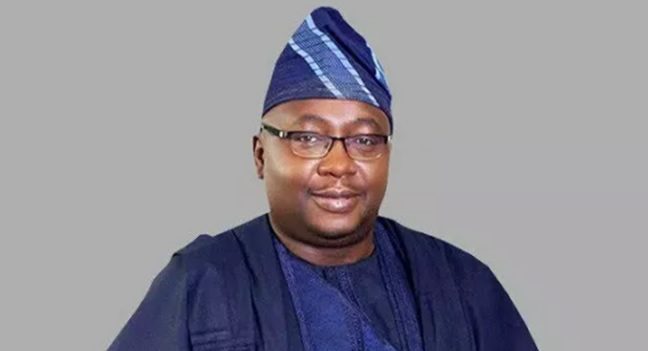The Minister for Power, Adebayo Adelabu, has indicated that citizens of Guinea, Togo, Mali, and other African countries pay more for electricity than Nigerians.
Adelabu mentioned that Nigerians would also be willing to pay more for electricity if they receive a better power supply for their money.
The minister made this statement on Thursday during his visit to the corporate headquarters of the Ikeja Electric in Lagos State.
During a meeting with the management of the distribution company, Adelabu stated that stakeholders in the electricity supply chain must prepare to establish a justification for the elimination of electricity subsidy in favor of a tariff that reflects the actual cost.
He expressed that the challenges confronting the electricity sector can be overcome if all stakeholders effectively fulfill their responsibilities.
He expressed worry that several of the 11 power distribution companies were not prepared to invest in power infrastructure.
He mentioned that the government would address this issue through legislation that would mandate all Discos to meet capitalization requirements.
“Many of our distributors are content with the current situation. There are significant infrastructure investments that can significantly increase your fortune and lead to higher revenue. Some Discos are not willing to make any investments; they are satisfied with their monthly stipend,
“We will not allow that. This is why we are proposing that if persuasion fails, we will resort to legislation. We are considering requirements for Discos' capitalization, which will compel them to allocate more funds.
“The power sector requires significant capital. It demands substantial investments and infrastructure, which can never be wasted. This will ultimately translate into sales and revenue for Discos. Therefore, we believe that our Discos must be prepared to invest in impactful infrastructure,” the minister stated.
Adelabu noted that Nigerians are unhappy about the current inadequate power supply caused by gas limitations, as there is significant heat, and due to the removal of subsidies, fuel is no longer affordable.
He suggested that Nigerians would be willing to pay more for power if it saves them from the expense of buying fuel.
“We have experienced similar situations in the past, but the current heat is unbearable, and the cost of petrol and diesel for generators has become unaffordable. Those who used to spend N2,000 on fuel now need N10,000. They cannot afford it; so, the complaints are increasing.
“I believe many people will be prepared to pay for electricity, at the present tariff or a higher one, because ultimately, we will transition to a fully cost-reflective tariff. This transition should occur within the next three years. The government cannot continue subsidizing the cost of electricity.
“Guinea, Togo, Mali, Ivory Coast, and all our neighboring countries, which are considered to be poorer than Nigeria, pay more than double what we pay here. I believe that our people will be ready, once they are assured of a reliable and consistent supply,” he added.
When the minister was welcomed to Lagos, Folake Soetan, the Chief Executive Officer of Ikeja Electric, said that the power sector's challenges in the country can be overcome.
She mentioned that the power distribution company has undergone several changes over the years, increasing its customer base from 700,000 in 2015 to over 1 million in 2023.
Soetan also revealed that the Disco has installed meters for 800,000 of its customers and has obtained new transformers.
However, she emphasized the challenges of energy theft and asset vandalization, and requested support from the Minister.



